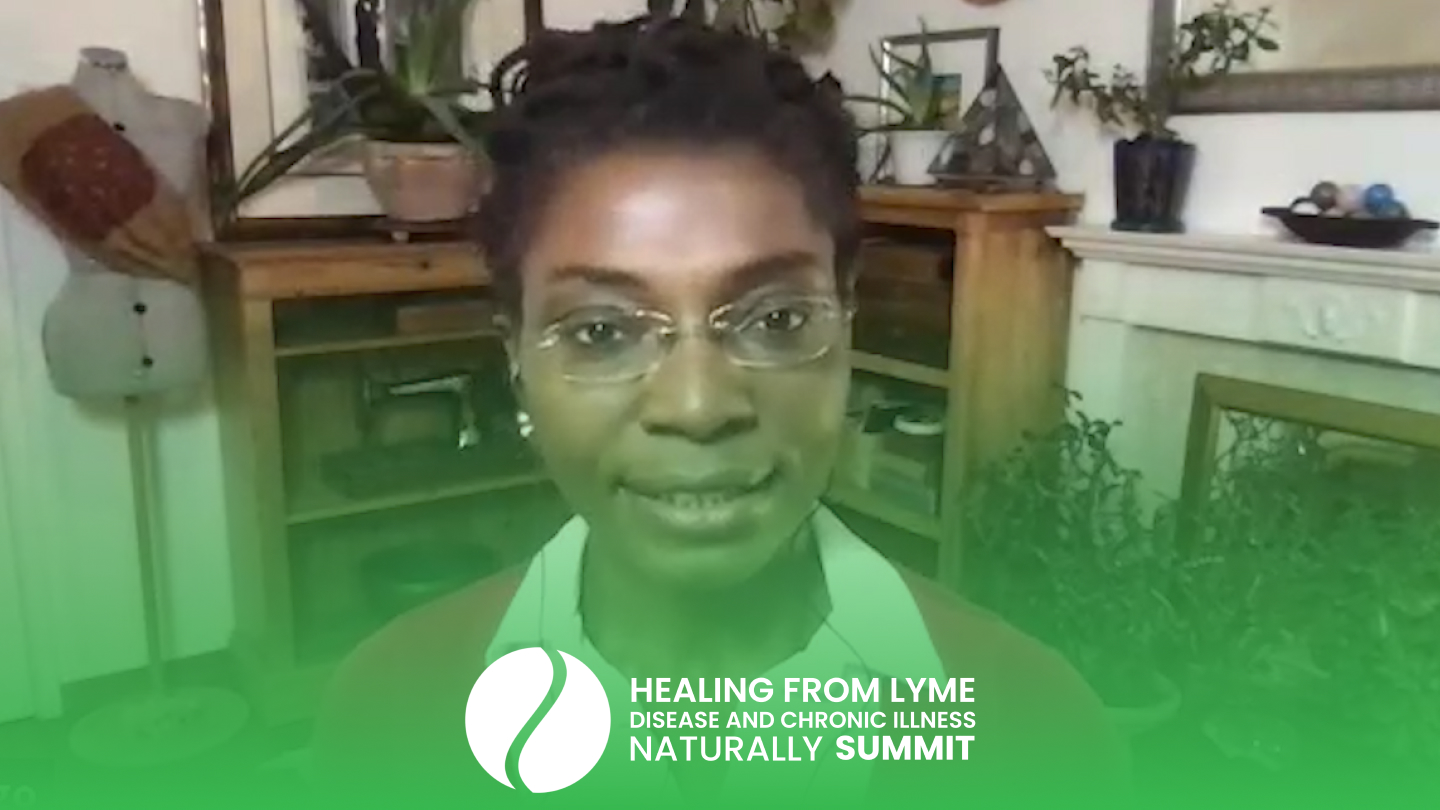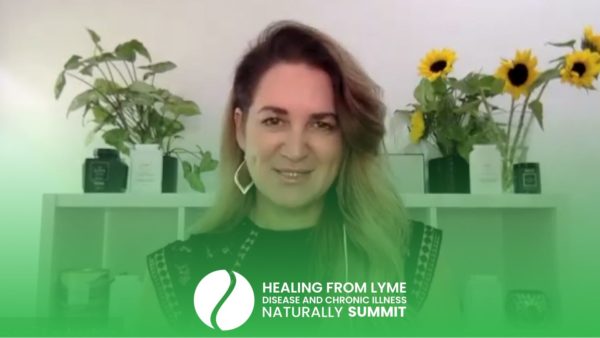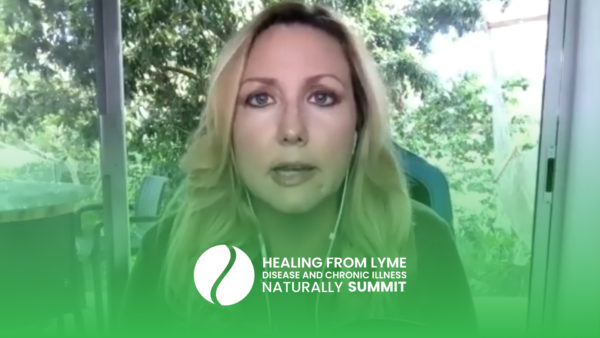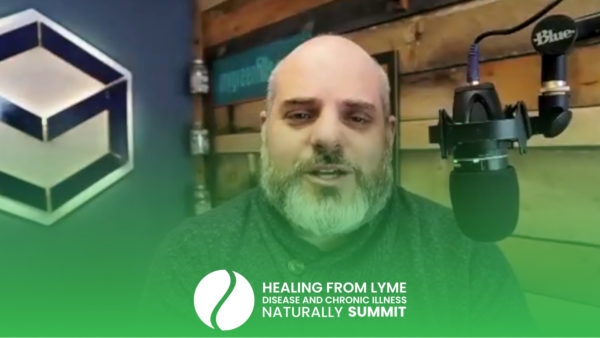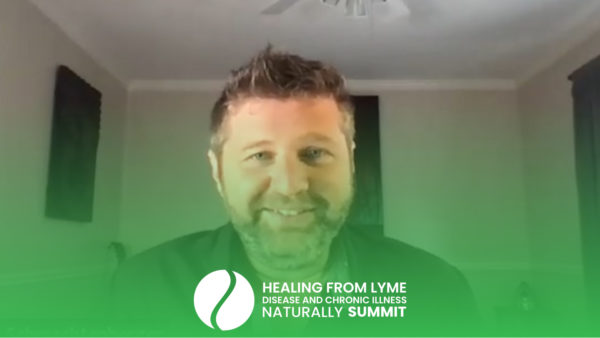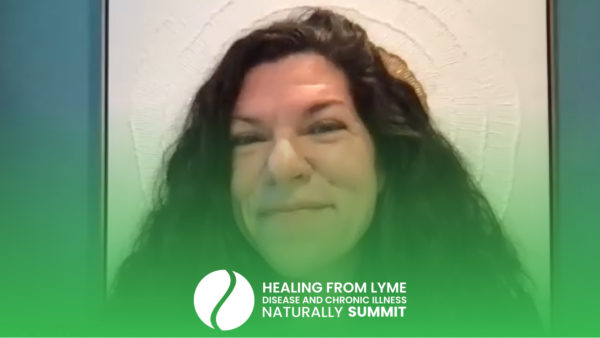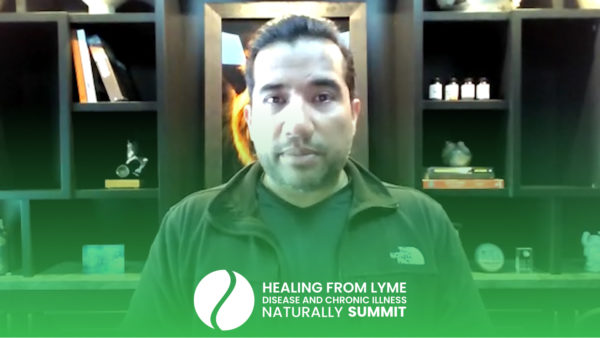Join the discussion below
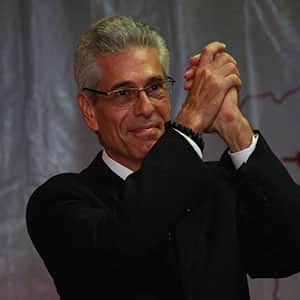
Rob Besner, PSc.D, Co-Founder and Chief Science Officer of Therasage, has always been an advocate of natural health and wellness. Graduating from Boston University in Pre-Med, Engineering, Psychology and Business, he continued onto post graduate work at Case Western Medical School and Holistic Medicine After many years of illness, Mr.... Read More
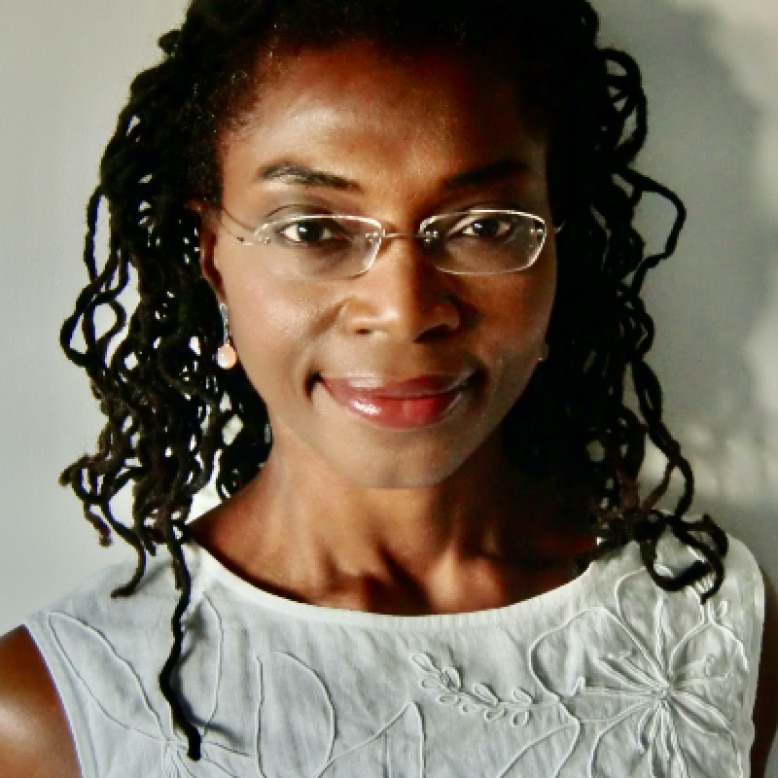
Thorough precision is Dr. Atabo’s hallmark. From a career as a plastic surgeon, Dr. Atabo became a software developer and a functional medicine practitioner. As founder and Medical Director at DoctorFunctionalMedicine, Dr. Atabo is a pioneer in the emerging field of network medicine, providing data-driven, personalised nutrition and lifestyle therapy... Read More
- How fibre protects against chronic infection.
- How micronutrients are essential for healing from disease.
- How herbs can fast track recovery.
Related Topics
NutritionRobby Besner PSc.D.
Okay, everyone. Welcome back to another exciting interview with the Healing from Lyme Naturally Summit. And today I have an incredible, really exciting guest to join us. Her name is Adigo Atabo. She’s a trained surgeon, medical doctor, and she’s here to talk about a really relevant, and super important topic. And it’s about nutrition. And nutrition is kind of a funny thing because we’re all familiar with good foods and bad foods and GMOs, and the way that foods have all these chemicals, and how that affects our body. But Dr. Atabo has built basically a whole career and a really exciting platform that I want her to describe sometime during the interview that allows all of us to learn from the most modern ways that nutrition and supplementation can really rejuvenate our body.
And so oftentimes, the Lyme community and any person with a chronic ailment is gonna have a challenge, a nutritional challenge because the imbalance in their bodies, in the microbiome, in the microbes and the parasites and the Lyme and the co-infections, they exhaust the body from many of the nutrients that we need to be healthy. And so knowing the proper supplementation, when to do it, how to supplement, what to dose, this makes all the difference between getting the most for your money out of supplementation, but mostly supplementing your body with the nutrition that you need to heal properly on a cell level. So with that, welcome to the Healing from Lyme Summit. Dr. Atabo, can you spend a few minutes and just give us a little bit of your background, walk us forward to the things you’re focusing on today, and then let’s just dive into the important relevant questions to be asked.
Adigo Atabo, M.D.
Wonderful, thank you, Robby, for having me. I am delighted to be with you and to share, have a discussion about this really important topic. So yeah, I went to medical school, and after graduating, I trained as a plastic surgeon. I really enjoy detail. So that really attracted me, just the finesse of surgery. The setting that I was working in didn’t really fit for me. And so I moved on into another area of interest, which is nutritional science and the power of food as medicine. And so I trained as a functional medicine practitioner, and became certified with the Institute for Functional Medicine. And I think along the way, I also trained and worked as a software engineer, and got some industry experience that way.
So the bringing together of these three things, this love and an eye for detail, an understanding about data and how to handle it easily, and also the nutritional training, that sort of came together to make me super focused on the mechanics of how does it work when we use food as medicine. And to cut a long story short, that has led on to after hours and hours of applying and developing a process for analyzing all the data, it led me to want to share this process with other people because I was getting great predictable results, but it was very laborious to conduct a proper systems analysis. And so I’ve created a platform called Persomic that allows individuals and practitioners to easily join the dots between their history, their symptoms, and their test results as a basis of guiding their nutritional therapy and management of chronic disease.
Robby Besner PSc.D.
Is that mostly the platform that you just referenced, Persomic, great name by the way, ’cause it has that personalized feeling to it, is it something that’s very user-friendly for the consumer, the actual Lyme patient, or is it really designed for the practitioner or health advisor that’s managing the patient?
Adigo Atabo, M.D.
We’re designing it for both. So we’ll have a two tier system. And so individuals can sign up and use it at a particular level, and then practitioners can use it for their patients and get more functionality out of the system because they have a more detailed knowledge and training about handling this sort of data. So it works both ways.
Robby Besner PSc.D.
It’s interesting because I don’t know of any platform that actually allows you to input all that information and then kind of spit out a report, I imagine, deep, a little more deeper dive or detailed for the clinician, but certainly one that the patient and the consumer can look at and kind of get a feel for how they’re doing, not just from a base level like here you are today, but as you start creating protocols. Whatever it could be, it could be aggressive against you know, looking to attack the Lyme or correct the imbalance in your microbiome to nutrient deficiencies. All that information spits out. Like now I see it as a symptom, so I can see when my symptoms start to go away or fade away or become less prominent.
That’s certainly a way that we all can see it resolve. But what’s really interesting is that oftentimes the testing and even the analytics of the testing, the report is some kind of dry. They take, either you spit into a tube or you might take some blood, but understanding how to manage the data, the results, and then all those combinations, boy, that’s exhausting. And it takes a very talented focused clinician that cares, which I’m not sure how many of those are left out there, you know, to actually get that right and do the best for the patient. Right?
Adigo Atabo, M.D.
Absolutely.
Robby Besner PSc.D.
It seems like you’ve got an amazing platform with a really unique solution. So let’s talk more about that. Is it easy to access the platform? Is it an affordable format? Can anybody get to it from anywhere in the world?
Adigo Atabo, M.D.
Sure, it’s accessed by the website, persomic.com; that’s P E R S O M I C.com. And it’s simple enough to register. So what we offer are just various ways of getting a baseline measure. So you can take various questionnaires that are, you know, free, and will give you some sort of numerical measure. And that’s really important because what you were saying about we can do various tests in order to see where we’re at, but if we don’t have tests, we have symptoms, the data can often pick up things ahead of symptoms, right? And also if you’re just looking at one thing, then you might miss something elsewhere. And I think it’s very challenging, even for clinicians who understand the concept of working as a system, it’s extremely time-consuming to try and put all the pieces together.
So you’re right. I don’t know of another piece of software that does what we are doing, which is why I felt it was important to try and create it. And there is something that is so valuable. As you say, there’s almost care in taking a systems approach. And I don’t berate clinicians who don’t do that because what it took for me to do that was tens of hours of work per patient. And not everybody chooses to do that or has the liberty to do that. So if we can deliver an easy way of getting that done, it allows you to be more comprehensive, to keep that big picture focus, which you can miss if you’re trying to just look at one piece and then another piece, and then another piece. So I found that the data doesn’t lie.
And if you don’t have that full picture, you might see something that seems a little, it’s a little bit off but not necessarily important, but when you put it in context, you see, ah, that’s how this fits into this, and that’s how this relates to this. And so you have an idea of how to tackle it, particularly with Lyme patients who have quite a lot of complexity, which is why they’ve developed the chronic infection in the first place, because they’ve got a lot of things going on that have set the system up in order for a chronic disease or a chronic infection status to thrive. So to unpick that complexity, I think the platform is very useful for doing that.
Robby Besner PSc.D.
You know, you hit on a point that, you know, I just got a download listening to you, many of the Lyme patients that are listening today, I’m sure can appreciate all the challenges going through with even just being diagnosed with Lyme. Your symptoms can mimic so many other diseases like MS or Parkinson’s or neurological stuff. Body changes, you’ve got pain issues.
Adigo Atabo, M.D.
Yeah.
Robby Besner PSc.D.
They’re all, again, you talked about complexity, and they’re all interrelated. And so what we’ve seen a lot in our coaching services, in our clinics here in the U.S. is that oftentimes you present with your symptoms as if you have MS. And if the doctor that is taking care of you isn’t Lyme literate, even thinking that it could be Lyme, it’s not even on the radar, then he treats and diagnosis you for MS. And then now that’s on your chart. So whether you’re with that doctor or not, the next practitioner picks that up, ask for your records. They go, “Oh, you got MS.” And then they continue with that, what I call stinking thinking. You know, I appreciate doctors that like their own labs and like to really kind of take a look at it from their own, like a clear page, rather than following someone else’s lead. But the point is is that it’s often misdiagnosed and mistreated because of that. And that’s the worst combination. You treat it for MS and not for what the underlying challenge is at the same time, you know?
Adigo Atabo, M.D.
Absolutely. And that labeling that follows you is so important because it just narrows the focus. And so somebody, then people actually go around, this is my diagnosis, this is my diagnosis. And then everybody is centered on the diagnosis. Even with something like Lyme, you mentioned protocols earlier, I’m actually not a big fan of protocols. Because with a systems approach, you’re not dealing with a disease. You’re dealing with a system. You can have lots of people who have the same disease, but when you look at what’s happening on a system-wide basis, they have different things going on. So you’re not gonna have the same approach necessarily for two people with the same diagnosis. And unless you take that systems view, you’re gonna miss that. And when you kind of latch onto a diagnosis and try to approach it from that point of view, you’re gonna miss all the other things that are going on within that person which are contributing to them having the disease.
Robby Besner PSc.D.
Couldn’t be said better. Earlier in the preparing for our summit, we had an opportunity to interview someone that is doing an extraordinary work in DNA. And that came to mind in our discussion right now, because why is it that someone can come in exposed to Lyme, even be bitten by a tick and won’t be symptomatic at all? And then you have someone that kind of, this is I’m being glib now, just walking past or a tick walking right past them and not even coming in personal contact and they’re immediately symptomatic.
Adigo Atabo, M.D.
Exactly.
Robby Besner PSc.D.
And this is exactly what we’re talking about. It’s the fabric and the tapestry that differentiates us that makes the difference, makes all the difference. And so what I love about our discussion today and the way that you’re approaching this is that it’s a blank page. You’re not influenced by a preexisting diagnosis that might be right or wrong. The information that you’re getting, either through your testing and through the quantitative testing or even the clinical stuff, the questions that you ask, fills in the blanks in the information, colors the tapestry so that you can actually get a much clearer holistic view of what’s going on for that person. Hence as a practitioner, you know the better approach, the more efficient approach to actually get to the underlying source, and certainly lowering their symptoms in some way. But mostly you get a better outcome and one that’s more sustainable,
Adigo Atabo, M.D.
Absolutely.
Robby Besner PSc.D.
not just sort of a bandaid for today, unless I’m in remission, so I must be better. No. Let’s look at the bigger picture of dealing with today and getting you back on your feet, but also how do we maintain that high level of optimal health? And I think that the tool that you’re building and have built, the platform and the way, the easy entrance for people to get to it makes that job a lot easier.
Adigo Atabo, M.D.
Absolutely. My mission is systems medicine for all, because this is a systems approach. So the more we can lower barriers for people to get access to this, the better. You know, we all have a responsibility for our own health, and we are trained in the traditional model to have a paternalistic relationship with healthcare providers. But really, you know, there’s no reason why we can’t be better informed and understand at a level that’s appropriate to us what’s going on, and make appropriate choices. So putting data, information in people’s hands gives them the ability to then make informed choices about what’s going on.
Robby Besner PSc.D.
Okay. So let’s unpack and dive a little bit deeper into why nutritional support is so important generally for good health. As a practitioner, there are tens of thousands of microbes that live basically in harmony in our digestive tract to help us with digestion that supports our immune system. When we have an imbalance in our internal chemistry, whatever the reason is, that Lyme has come in, it’s become prominent, maybe with the co-infections. However that has happened, that imbalance has also created a drain on the core nutrition that your body needs in order for it to thrive as the individual. So can you talk a little bit about the importance of nutrition in terms of healing, the process of healing from Lyme towards that way? And then I wanna talk a little bit more about, you know, like some particular things, like micronutrients and the importance of those, if you would.
Adigo Atabo, M.D.
Sure. So nutrients are the building blocks for life and for health. Our bodies are made up of elements, which are arranged into compounds. Those compounds are going to be the macronutrients. So we’re talking carbohydrates, proteins, fats on the one hand. And then we have micronutrients on the other hand, which are present in smaller amounts, and they are the vitamins, the elements, the phytochemicals, phytonutrients. And essentially we’re just a huge collection, even the bacteria within us, of all of these substances. So on a macro level, what we eat affects the integrity of our tissues. It keeps the integrity of the tissues healthy. So we can go in when we talk a little bit later about key nutrients into more detail about that.
But on a micro level, if you imagine a chemical pathway, which there are trillions of chemical reactions going on in the body all the time, the basic unit is that A is transformed into B. And in order for that transformation to occur, there’s an enzyme that facilitates that reaction. So the building block A might be a nutrient, or the enzyme might require a nutrient in order to work properly. And so if you’re nutrient deficient, that’s going to affect your biochemical pathways. And without those biochemical pathways, your cells aren’t going to work properly. Your mitochondria for energy production aren’t going to work properly. You’re not going to be able to have strong tissues and barriers, which are very important for health.
You’re not going to feed the microbiome, the bacteria in the gut that are so important, work synergistically with us. So from a big picture, nutrition is central in terms of putting a foundation in place on which to build. It’s not everything, but it is central. You can, I kind of look at this like a race in a sense, and I think nutrition will get you 60 to 70% of the way there, but there are other things that need to come on board alongside that in order to have a sustained, as you mentioned earlier, recovery, because it’s easy to make gains and then slip back. Right? But what we want is a recovery that endures over time.
Robby Besner PSc.D.
Love that. Great answer. You know, it brings to mind another body of work from a dear friend, Dr. Nathan Bryan. In one of his presentations, he was just comparing a simple vegetable like broccoli. And he had his team go out and measure the nutritional value of broccoli in New York, broccoli in Massachusetts, broccoli in a different state. And to the average individual like myself, I go to the food store. I buy broccoli; I’m not looking at that.
Adigo Atabo, M.D.
Broccoli’s broccoli.
Robby Besner PSc.D.
Broccoli’s broccoli, right? But yet when Dr. Bryan’s team measured the nutritional substance or value, it was incredible the variances of the amount of nutrients and micronutrients from just from just a, whatever, a spear of a broccoli from state to state. So it’s very troublesome because we know our soils are depleted from many of the nutrients that the plants and the fruits and vegetables need in order for them to actually transmit that food value, that nutrient value to the body. And so here I think I’m eating broccoli and I’m getting everything that I need in terms of vitamins and nutrients and so forth.
And in fact, I might be filling my stomach up and feeling full, but not doing very much from a nutritional point of view, which makes me feel that having a good nutritional source you know, in terms of supplementation, a compounding group might be very important to add that value. So we get our full tummy, but we also, with the supplement, get the actual nutrition that we need on a micro and macro level for us to thrive.
Adigo Atabo, M.D.
actually interviewed him for my recent summit, and yes, lots of valuable information from him. And then the other thing there is, yes, there are degrees of separation. Like not all broccoli is created equal, right? But having said that, there is also the importance of the distinction in kind, if you will. So that relativity, it’s better to eat broccoli even if it’s nutrient deficient than it is to eat refined processed carbohydrates. Right? And so it’s not an excuse not to eat your broccoli, but it’s a reason to have that awareness, as you say, about again, the richness of what we’re dealing with and the complexity of what we’re dealing with. So within the broccoli, there are micronutrients that are really key. And in some cases, and particularly in modern times, where as you say, soils are nutrient deficient, it maybe isn’t enough.
Even though eating that healthy diet is a great start, we can still be deficient in certain micronutrients because the soil in which the food is grown is deficient. And so the micronutrients are then not transferred to the plant. So again, it comes back to putting the pillars in place. But then at some point, you need to dial in and fine tune what is happening because for various reasons, it’s not the same case for all of us. And even if we both are eating the same diet, we’re gonna have different levels of micronutrients within us because of our genetic makeup, because of everything else that’s going on with us. So you can’t really, the externalities will tell you so much, and then there’s a place to do a deep dive and look at what is happening for you, and try and really understand that in a way that’s accessible.
Robby Besner PSc.D.
That, my angle where I was coming from is it just became more apparent to me why your platform is so important because here I am eating broccoli or eating healthy, thinking that I’m getting all the nutrients that I need, but, you know, lacking an immediate symptom of sort, because you know, that deficiency could take years before it expresses itself. So, you know, I’ve recently changed my diet and also changed my athletic, all of my exercise routine. And all of a sudden, I’m starting to get a lot of cramping in my legs. I’m doing a lot more biking and that kind of activity.
So am I deficient in potassium? Am I missing magnesium? You know, here I am eating a healthy diet. Yet, now I know I’ve changed something, but it could be that I’ve had tens, you know, decades of some very micro-deficiencies of certain trace minerals that are so important for building protein, you know, building blocks of what makes your body healthy on a cell level. But I’m not getting a report that’s telling me that, and I’m not symptomatic, but I change one thing, and all of a sudden, now my legs are cramping.
Adigo Atabo, M.D.
Something else shows up. So what is the connection? And how on earth do you figure it out, right, without spending the rest of your life in a library, trying to piece it all together? And that kind of relates to the issue of deficiency and insufficiency, right? So if you were to go, you know, in order to investigate your symptoms, you think, okay, I’m gonna measure my potassium. I’m gonna measure my magnesium. I’m gonna do all of this stuff. There is a standard distribution curve. And the way we say that you’re within normal is if you fall within a reference range, say for 95% of the population or 90% of the population. And if you’re outside of that, then you’re considered to be out of range, and that you might be labeled to have a deficiency in a certain nutrient.
But even when you’re within range, you can have two people within range who have exactly the same number, but one of them has an insufficiency. And what that means is that they don’t have enough to meet their needs because of the various demands that are at play on the system. And how on earth do you gauge that? Because that single number measure isn’t gonna tell you that. The only way you can gauge it is by tying it up to everything else that is happening, the fact that you’ve got cramps in your legs, the fact that you’re eating X or Y. So that’ll kind of give an indication of, okay, maybe you need to look at this rather than that. And it’s just so complex that we have a hard time trying to make sense of it without some sort of help and support. And thank goodness for technology, because it’s allowing us to deal with the data in a way that’s a lot more flexible.
Robby Besner PSc.D.
Well, you know, love that. And in a world that’s becoming less personal, you created a platform that really identifies me. It’s totally personalized; it’s about me. And it puts me in context with my full body systems. Of course, there’s some reference based on the amount of data in your database, so how I compare to someone else my age, my height, my weight, and so forth, you know. That’s the curve that you talked about. But what I really love is how you kind of jumped in between that data, barrage of data, to create a, again, a platform that individualizes the data to how it’s relevant to me. And frankly, that’s why I feel that your work is so important. And particularly as we’re talking to the Lyme community today, everybody in the Lyme community, they’re expressing in different ways also.
Adigo Atabo, M.D.
We all are, even if you’re perfectly healthy. Right? We are all, yeah.
Robby Besner PSc.D.
problem that is also complex because it could be the Lyme, and it could be the co-infections, and maybe we manage the Lyme fine, but the co-infections are becoming more important now.
Adigo Atabo, M.D.
Yeah.
Robby Besner PSc.D.
Again, back to what I really wanna come back to is what nature, how nature intended us to be. We are all pretty much born with really strong immune systems. And then we get out into this world, and the epigenetics, the effect of our environment, and certain proclivities, the choices that we make in food and lifestyle and so forth, kind of influence our DNA in some ways that could bring out expressions that might’ve been recessive, and we may never have seen it ever in our lifetime, but in the world we’re living in today, depending on where you are, oftentimes the environment has become another big stressor or an important player for general health and wellbeing.
Adigo Atabo, M.D.
Yeah. What you said raises the point. You know, we live in a hyper-individualized society, and that, even the sort of the naming Persomic, I was a little bit like, hmm about it, just because of focusing on the individual. But what I’ve come to appreciate with systems medicine is that the system doesn’t stop at the body. The system incorporates the environment. The system incorporates society. It incorporates culture. So it’s not that we’re putting measurements of these various factors into the platform, but what you eat is influenced by where you live. It’s influenced by how much money you have. It’s influenced by all manner of factors. How you handle food is influenced by your genetics. It is yes, giving you a picture of you as an individual, but that is linked in infinite ways with what is around you, with your community, with the environment, with society. So it’s important to have that sense of framing as well, that we’re not, we don’t exist in isolation. We exist in relationship to others. We exist in relationship to the earth, and that influences us on a cellular level.
Robby Besner PSc.D.
Dr. Zach Bush has created an entire thesis around the relationship of your microbiome, your community, and your internal environment, and how that interacts with your external environment. And I love his body of work, and we often will talk about stuff like that. Healing beyond food, it’s really intriguing because food is one source. We have all these other nutrients. Hippocrates is always the father of modern medicine, is always, is quoted all the time about food is thy medicine. And I think maybe in those days, his days, food was medicine, but today’s food isn’t necessarily medicine, and so, because of what we talked about already, the deficiencies and the disparities from food sources, and the way that they’re grown and managed.
I’m not even bringing in glyphosate and some of the chemicals that are actively used in farming these days, modern farming, that I think is a real culprit in the underlying cause of immune deficiencies. And I mean, now they’re tying leaky everything, leaky gut, leaky heart, leaky throat, leaky brain. Everything is leaking because of this chemical that’s in our food, water and air, glyphosate or Roundup. Talk about, let’s talk about healing, you know, beyond this food, in terms of the nutrients.
Adigo Atabo, M.D.
Okay. Essentially food ties into a lot of the modifiable risk factors. I’m gonna start there before I go into the beyond food, right, modifiable risk factors that many people with Lyme suffer from. So high proportions of people will show up as having some biomarker of mold exposure, say. So let’s look at fibers, for example, in food. Fiber is a great way of allowing the body to excrete some of the mycotoxins because they can bind to the fiber as it passes through the gut. Yeast overgrowth, parasites, a lot of people with Lyme have these conditions going on as well. So yeast overgrowth is going to be precipitated by eating foods that are high in refined carbohydrates, eating sugars. That’s going to promote yeast overgrowth. So your diet is going to influence that.
Over half of people who have Lyme have the SNP for MTHFR to making that enzyme less active. Nutrients can counterbalance that by giving you extra cofactors and coenzymes to drive the pathways that MTHFR catalyzes. If you have environmental factors as you talked about, pesticides, by paying attention to eating organic, non-GMO, you can minimize the entry of pesticides into the body. So we know that toxins we haven’t really touched on, but people with Lyme tend to have high levels of mercury and lead, as well as other heavy metals. Oxidative stress, which is an effect of all of these things going on, causing tissue damage, phytonutrients, which are the chemicals found in lots of colorful plants, they have a wonderful antioxidant effect. So we see that there’s a lot going on in terms of risk factors that can be modified, and food really touches all of them.
I think when I think about beyond food, the autonomic nervous system comes to mind, even though we can use food to regulate that too. But if you think about the higher order of things, there is a level at which trauma plays a part, and needs to be addressed and paid serious attention to. Because what’s going on in the mind, your emotional state, is going to have a very powerful impact on your health state. So there are lots of studies that show the impact of generational trauma. So, you know, in your womb, if your mother was stressed, you’re likely to have a chronic disease, a higher risk of a chronic disease later in your life. Like it’s that powerful. So sometimes I see that we can make gains by really paying close attention to the nutrients. But if the trauma part, if the mindset part isn’t taken care of, there’ll be a slippage.
It’s almost like the compass wants to go through, you know, it’s headed for the iceberg. And the work we do turns the ship away. But without correcting that work, there’s a steering back towards the iceberg. Again, it is that big picture lens. It’s looking at the system. And nature is just really a collection of systems. If you don’t have the relationships that are supporting you and there’s something else that’s kind of triggering, I don’t know, deep loneliness, or, you know, you live in a polluted, your groundwater has got lead in it or whatever, all the food in the world isn’t gonna take care of that. So I think that healing beyond food is really widening the lens about the various factors that feed into your system and can cause it to be into and out of balance. So yes, food is very important, and it is one part of a bigger picture.
Robby Besner PSc.D.
You know, not that many people and practitioners really address the emotional piece. That’s so pertinent. I don’t really believe in my heart of hearts, like way down deep, that you can actually heal completely unless you manage the emotional piece.
Adigo Atabo, M.D.
I agree.
Robby Besner PSc.D.
Really what you touched on was super interesting to me because it is, it could be multi-generational, meaning you could be inheriting emotional trauma, in your emotional DNA is what I call it, from generations before, people that you don’t, maybe have never come in contact with, but it has been transferred. And that mentioning about in the womb, I mean, we think that the clock starts when you are birthed, but in fact, even when you’re carrying, and there’s many studies that are coming out now about, you know, singing and being playful and so forth while the mother is carrying their newborn, just to enhance that connection. So you come out more emotionally sound. So I believe that this emotional piece is super important. And something you said earlier triggered in my mind that we kind of get lost. I think that what happens in our travels and our journey as we progress with Lyme, let’s say, there is a internal, you mentioned a compass, I call it a GPS. So somehow our GPS guidance system inside, the systems GPS gets turned off in certain ways.
But it hasn’t been lost. Like muscles have memory, oftentimes the body has, and the cell has memory like that too. And in the beauty of what nature has given us, many of our systems, the tissues and the cells regenerate pretty quickly. Like your GI tract will regenerate every three days. If you have an eye injury, that can repair within hours. It’s incredible the amount of wonderful things going on. So I think that a key would be to somehow figure out these root cause challenges as they present, and understanding that when you’re chronic, and the community watching today, you know, they could be bedridden or they could be highly functional, wanting to stay on top of their game, they still have to be cognizant that there is an emotional component. And also if they are bedridden and feeling like there’s no way out, there’s no way I’m gonna be able to get on my feet, they need to know, it’s so important to know the power of the regenerative properties that we all have in us.
Adigo Atabo, M.D.
Absolutely.
Robby Besner PSc.D.
And we just have to spark them.
Adigo Atabo, M.D.
Yeah.
Robby Besner PSc.D.
That’s why, again, I’ll go back to your platform. I love it because it gives us so much information that can give us the roadmap that we need to kind of claw our way back to good health and come out of that tunnel.
Adigo Atabo, M.D.
It’s all about support and care, isn’t it? And you know, as much care and support we can put around ourselves, then the more likely we are to move forward, move towards health and away from disease. I’m so super inspired by nature and always look to nature for guidance and inspiration. And the regenerative power of nature is so inspiring. And that vivacity, that urge for life, you can walk through a concrete city and you’ll see weeds coming up through the paving stones. You know, life wants to express itself and it wants to, you know, show itself in all its wonderful glory and abundance. And our bodies are the same. I think that desire for healing is very, very strong. And so however we can support that is really, you know, there are many ways of doing that. And then another thing that comes to mind from what you say is, again, it’s that systemic piece. There is no, when we say or when I say you have responsibility for your health, it’s yes, that is true.
And I think that awareness that there is a component that is beyond you as well is also helpful because it brings compassion to a situation. So, you know, if you’re feeling extremely alone, well, you know, the fact that we have fragmented communities and many of us live very isolated lives, it’s not because of a failure on your part necessarily to form relationships, right, that you’re alone. So it’s kind of just putting a soft lens on what’s going on to recognize that something as simple as devices. You know, if you’re stuck at your desk all day, which is what many of us are doing, looking at it at a device, and you’re not out in nature, getting exercise, you know, breathing in fresh air, which is what the body is naturally designed for, then that’s gonna be feeding into your health state. But you can’t kind of just give up your job. Right? So it’s, I think just having that wide lens allows you to look compassionately at your situation, and then just reach out and okay, what is doable for me? What is achievable for me? What can I call on to help and provide care and support to help me move forward?
Robby Besner PSc.D.
We’re running out of time and I could talk to you for days because it is so important and so relevant. But for people, in summary, can you give us maybe one or two starting reference points? Your platform speaks volumes to a great starting and reference point. And we’re now talking about Persomic, which is the name of your platform and your company. But for people that maybe aren’t ready to enter into the platform right now, can you suggest maybe one or two simple things that I can do to help me get out of bed or to focus on what nutrition or what part of my nutrition I might need to look at a little bit closer just to help me with my Lyme, and to get me pointed in a direction where I start to see a change.
Adigo Atabo, M.D.
Sure. I think as much as technology is important, we’ve survived millennia without technology, right? So it’s by no means essential for health. I think that, you know, I could go into the kind of six pillars of health. And watch what you eat. Make sure you get enough sleep and all of that, I would almost want to break it down even simpler and encourage you to connect to your body and listen to your body, right? Your body speaks to you. By its mere state, it’s telling you something. And we’re kind of trained and conditioned to override that and just steamroll ahead. If I’m feeling tired, well, I got to keep going because blah, blah, blah. So the first thing I would say is just listen to your body. And if you’re in bed and you’re feeling tired, allow yourself to rest without the mental game of I shouldn’t be in bed, I should be up and doing something else because that is sapping you of energy.
Just respond to the simple directions and simple requests that your body is making of you. And then in terms of food, you know, the big thing is, one is to eliminate things that are harming the body, right? The refined and processed food, they’re the big things to get out of your diet. So you’re talking about refined carbohydrates, white flour, white sugar. Essentially try and shop in the produce section of your supermarket, and only allow yourself to buy a handful of things that are outside the produce section. The more fresh fruits and vegetables you eat, the better. Color is so important with food. When you have a plate of colorful food, there’s just such a vibrational energy that is enriching. But more than that, each color group has a different set of phytonutrients, phytochemicals, that work synergistically with your body to support reducing the oxidative stress, supporting your immune system, providing the vital cofactors and coenzymes to drive powerful reactions, chemical pathways.
So eat a rainbow diet as it’s commonly called. And let the majority of what you’re eating be fruits and vegetables, because you can’t really overestimate the healing power of the fiber, of the phytochemicals and phytonutrients. So if you’re in bed, we could go into relationship and movement and all of that. But I think keeping it simple and keeping one or two or three things, I find is a good way because it can be overwhelming when there are a lot of things to do. Focus on handful of things for a certain period, and then see how you’re doing. Do you have the capacity then to shift and do one more thing? Are you feeling better so that you can move on to doing something else? So I would say those things to start with. Listen to your body. You know, receive it, be compassionate, be accepting of where you’re at. And in terms of your diet, cut out the refined and processed foods and eat an abundance, as much as you can get down you, of fruits and vegetables. I think that’s a good start.
Robby Besner PSc.D.
Wow. How powerful. You know, what came to mind, my download was when you can go to a gas station and by the way, I have nothing against Twinkies, but if you can go to a gas station and buy a food source that is in a package that has a shelf life of 500 years, and the first five ingredients are some chemical that you cannot even pronounce, there’s something not right about that in terms of the way that we’ve progressed in so many ways. Right? And I just absolutely love what you talked about, listening to your inner voice. As good as you are as a coach and a doctor, as well as us and our staff, the best doctor on the planet is the one that’s inside each and all of us. And we all have a tendency to ignore that, and just go on with the things that we want to do without regard to what that inner voice is saying. And if you just stop for a moment and ask the question, you know, is this good for me, just close your eyes and listen for that inner voice answer, it might make all the difference in making the right or the wrong choice.
Adigo Atabo, M.D.
Yeah, yeah. I would just add as well to that. And it’s not a but, it’s an and, the concept of signal and noise. You know, I think we’re also conditioned to be out of touch with our bodies because it sort of drives the consumer society. Reduce, even if we say, okay, listen to my body, it can just be this haze, like you know. You know, where do you start? Not picking up a signal. So a good way to actually decrease the noise so you can tune into the signal that your body is giving you is to maybe undertake a period of fasting, to clear the deck, or an elimination diet. And that will reduce the factors that are causing you to be out of kilter and causing all these different symptoms, and allow you to have a baseline that’s cleaner and clearer, for you to notice then what your body is saying. So that’s another thing I would add in. If you want, as a way of starting to listen to your body is try and clear the deck a little bit to begin with, so that you can actually perceive the signals that your body is giving you. And a good way of doing that is with fasting.
Robby Besner PSc.D.
Wow, fascinating, what a powerful tool. You know, and you don’t have to fast and not eat for days. You can do what’s called intermittent fasting where you just miss a meal. Like you don’t have that big breakfast or lunch, and you just go dinner to dinner. And what that does is it gives a kind of a hard reset to your organs. If they’re not expending, your body’s not expending all this energy to digest food, which sounds funny because the food gives you the energy once it’s digested, but your body has to go through many processes. And if it’s highly processed food and not part of that natural source, what I call low order food, you know, the ones that are the base levels that just come out of the ground. My son is an organic farmer in Michigan, and I cannot tell you the difference. When I go out to his farm and I pick the vegetables that I’m having on my plate that night for dinner, the difference. And we were fortunate.
We tried to only buy organic foods at the store and so forth, but even the difference between it being picked and processed and brought to the farm stand or the food stand is very different than just going out to your garden and picking it yourself, you know? And so there’s various degrees, but I’m just expressing that it was remarkable, the difference in the way that it tasted, and the way that my body responded to it. And so, wow. I mean, your finish was amazing today because what you offered the community listening is so important for vitality and for longevity, and certainly to help every single person here, whether you have Lyme or not, but particularly if you’ve got chronic Lyme or some other chronic challenge. Dr. Atabo, thank you so much for taking out the time to join us today.
Adigo Atabo, M.D.
My pleasure.
Robby Besner PSc.D.
Once again, how do people find you? What’s your website? How?
Adigo Atabo, M.D.
Sure, sure. So, yeah, the platform’s available at persesomic.com. That’s P E R S O M for mother I C.com. And that’s the best place to connect with me. I’m also starting a YouTube channel called Systems Medicine. I’ve just been, you know, all the interconnectivity, it’s so, for me, vibrant, that there’s just this desire to continue to put material out, to support people in understanding how their bodies work and how they interrelate to what is around them. So I would say those are the two avenues to connect with me principally.
Robby Besner PSc.D.
Great. Well, your contribution to our summit is enormous. And your contribution to everybody out there, Lyme community or not, is super important for people to know about. Thank you so much for joining us, and we appreciate you very much, and certainly your body of work and your dedication to, from a philanthropic point of you, to just raise awareness and to get the word out and to help people help themselves back to good health. Thank you again.
Adigo Atabo, M.D.
That’s what it’s all about. Thank you for having me. It’s been a pleasure speaking with you.
Robby Besner PSc.D.
Super, thank you again.
Hey, everybody, it’s Robby Besner. Thanks so much for joining us today. Please share this content with anyone that you think might benefit from it. And we’re looking forward to having you with us tomorrow for another great interview.
Downloads

